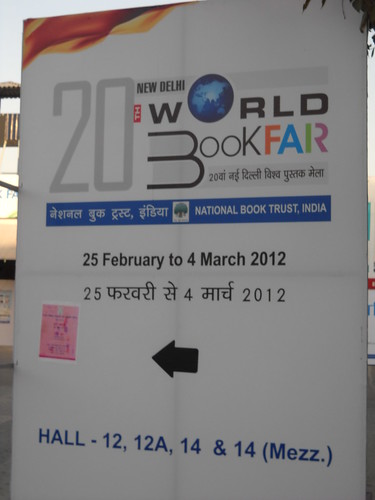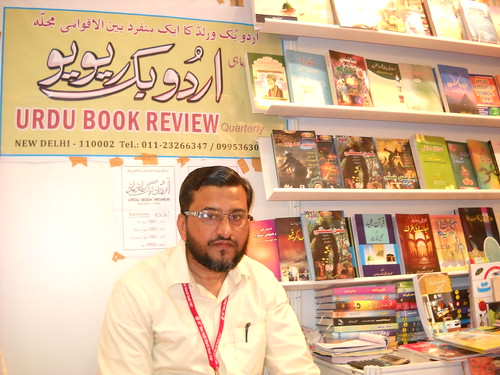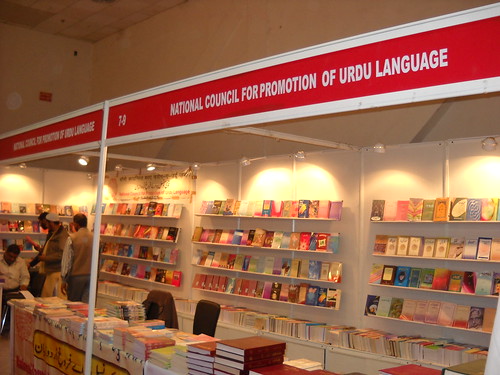By TCN Special Correspondent,
New Delhi: The 20th World Book Fair at Pragati Maidan in National Capital is in full swing. Every day, thousands of book-lovers from different parts of the country and some foreign nationals are visiting the fair. Started on 25th February, the fair is going to end on Sunday, 4th March.
There are more than thousand book stands and stalls selling books almost in every major language of the world. The Hall No. 7 is for the publishers and distributors who have come from different countries. The Hall No. 10 is been allocated to the national Urdu publishers and distributors. Like every year, dozens of Urdu publishers and distributors are attending the book fair this year. But the Urdu publishers and distributers say the sale is not exciting.

Mohammed Arif Iqbal, who sits at the stand of Urdu Book Review Publishers in Hall No. 10 says, “It is just a matter of representation, there is hardly any sale”. According to Arif Iqbal, who also edits quarterly Urdu Book Review, the lone journal of Book Reviews in Urdu, “For the first three days, people came and collected catalogues and gone”. From the fourth day, he adds, “people started buying but you can’t term it something exciting”. Iqbal’s claims can be substantiated when you have a look around.

Arif Iqba, Director, Urdu Book Review Publishers
The stall of National Council for Promotion of Urdu Language (NCPUL) is almost empty. So is the stall of All India Urdu Book Publisher and Book Seller Association. Dilip Khan, a young Hindi Journalist with Rajya Sabha TV and trying hard to learn Urdu is surprised to see the situation in the hall allocated to Urdu. “There are hardly any people here,” he exclaims comparing it with the Hall allocated to Hindi. “This is shocking,” he adds. There is no comparison with English language publishers.
“Certainly, Hindi is doing well in comparison of Urdu for many reasons,” admits Arif Iqbal, when asked to compare Urdu with other Indian languages. He says, “There are lots of publishers in Hindi who sale fiction and other books but there is not a single Urdu fiction publishers till today,” he asserts. This reporter also felt the same, when he could not find the novels of Sahitya Academy winning writer Abdus Samad.

Publishers and Distributers of Islamic books are also not doing great in terms of sale. “Theek-thaak hai”, says a staff at the stall of Markazi Maktaba Islami Publisher, a leading publisher of Islamic books, when asked about the sale. Kausar Usman of Pharos Media, a frequent attender of book fairs across the country shares the same feeling.
However, in hall number seven, the publishers and distributers from Pakistan are doing better than Indian counterparts. The possible reason behind this is as Arif Iqbal points, “they have some of the important Urdu books which are not available in India”. And here he adds an interesting point, “Most of the buying from that section is either Zarooratan (because of need, like by Scholars and Critiques) or Tabbarukan (just for the sake of buying since it is from different country)”.
